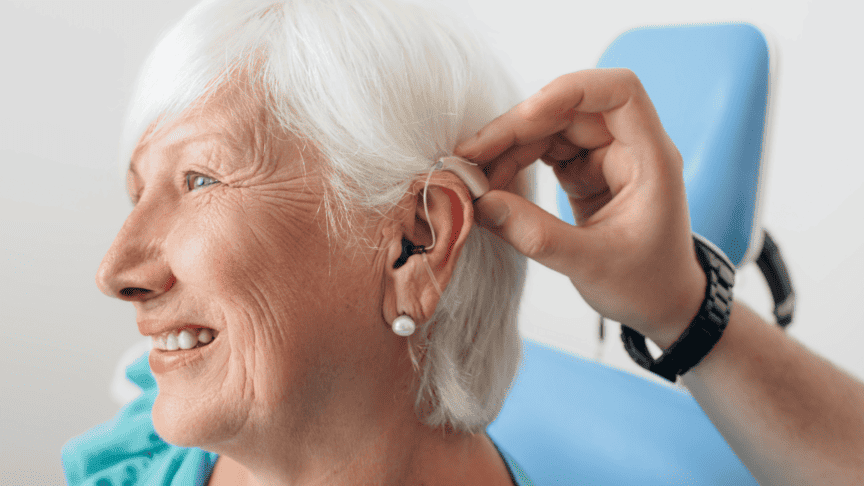Hearing loss is more than just a decline in our ability to hear; it can significantly impact our daily lives, relationships, and overall well-being. One type of hearing loss that many individuals encounter is sensorineural hearing loss. Let’s break down what sensorineural hearing loss is, its common causes, and why seeking professional help is a crucial step for improving your overall health and well-being.
Defining Sensorineural Hearing Loss
Sensorineural hearing loss occurs when there is damage to the inner ear (cochlea) or the nerve pathways from the inner ear to the brain. Unlike conductive hearing loss, which involves problems with the outer or middle ear, sensorineural hearing loss is often more complex and can affect the clarity and volume of sounds.
Causes of Sensorineural Hearing Loss
Understanding the causes of sensorineural hearing loss can help you recognize potential risks and take preventive measures. Here are some common factors contributing to this type of hearing loss:
- Aging (Presbycusis): The natural aging process can lead to wear and tear on the delicate structures of the inner ear, resulting in sensorineural hearing loss. This type of hearing loss is often gradual, starting in the higher frequencies.
- Noise Exposure: Prolonged exposure to loud noises, whether at work or during recreational activities, can damage the hair cells in the inner ear. Once damaged, these cells do not regenerate, leading to permanent sensorineural hearing loss.
- Genetics: Hereditary factors can play a significant role in hearing health. If there’s a family history of hearing loss, individuals may be at a higher risk of developing sensorineural hearing loss.
- Illnesses and Infections: Certain illnesses, such as meningitis or mumps, as well as chronic ear infections, can contribute to sensorineural hearing loss by damaging the inner ear structures or the auditory nerve.
- Head Trauma: Injuries to the head or skull fractures can impact the delicate structures of the inner ear, resulting in sensorineural hearing loss.
Understanding the Impact of Hearing Loss
Living with sensorineural hearing loss can present various challenges, affecting both personal and professional aspects of life. Individuals with this type of hearing loss may experience:
- Difficulty Understanding Speech: Sensorineural hearing loss often affects the ability to hear and understand high-pitched sounds, making it challenging to understand speech, especially in noisy environments.
- Tinnitus: Many individuals with sensorineural hearing loss may also experience tinnitus, a ringing, buzzing, or hissing sound in the ears. This can be a persistent and bothersome symptom.
- Social Isolation: Struggling to hear in social situations can lead to feelings of isolation and withdrawal. This, in turn, can impact mental health and overall quality of life.
- Impact on Relationships: Communication is the foundation of healthy relationships. Sensorineural hearing loss can strain relationships due to misunderstandings and frustration.
Seeking Professional Help
If you think you may have sensorineural hearing loss, seeking professional help is the first step in your journey to better hearing. Here’s where to start:
- Schedule a Hearing Evaluation: A hearing health specialist can conduct a thorough evaluation to assess the extent and nature of your hearing loss.
- Discuss Your Medical History: Providing information about your medical history, including any exposure to loud noises, family history of hearing loss, and past illnesses, can help the hearing health specialist pinpoint potential causes of your hearing loss.
- Explore Treatment Options: While sensorineural hearing loss is generally irreversible, there are various treatment options available to manage the condition effectively. Hearing aids, cochlear implants, and assistive listening devices are among the solutions that may improve your hearing and quality of life.
- Embrace Healthy Hearing Habits: Adopting good hearing health practices, such as protecting your ears from loud noises and maintaining overall health, can help prevent further hearing loss.
Visit Us for Ongoing Support
Sensorineural hearing loss is a common yet complex issue that can have a profound impact on your life. Understanding the causes, recognizing the impact, and seeking professional help are essential steps in managing hearing loss and improving your quality of life.
If you or someone you know is experiencing symptoms of sensorineural hearing loss, visit a hearing health specialist for more support. We’re here to help you learn more about your hearing loss and find the perfect treatment options.

